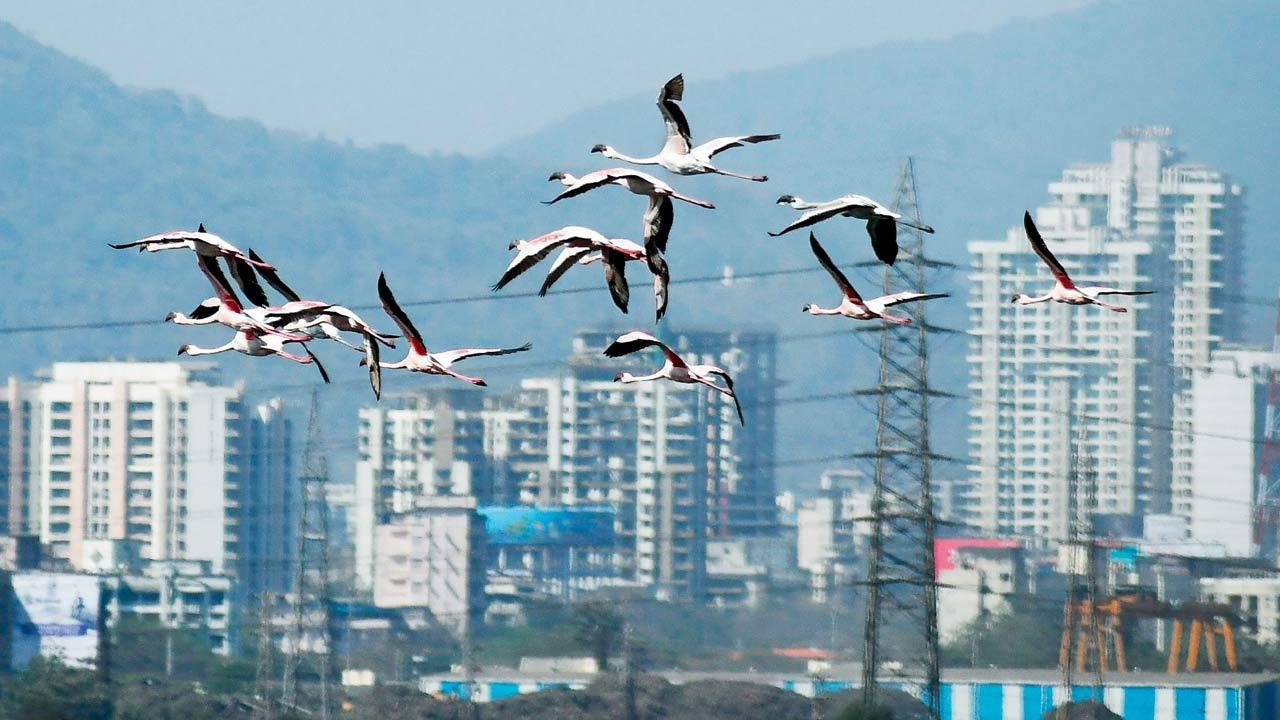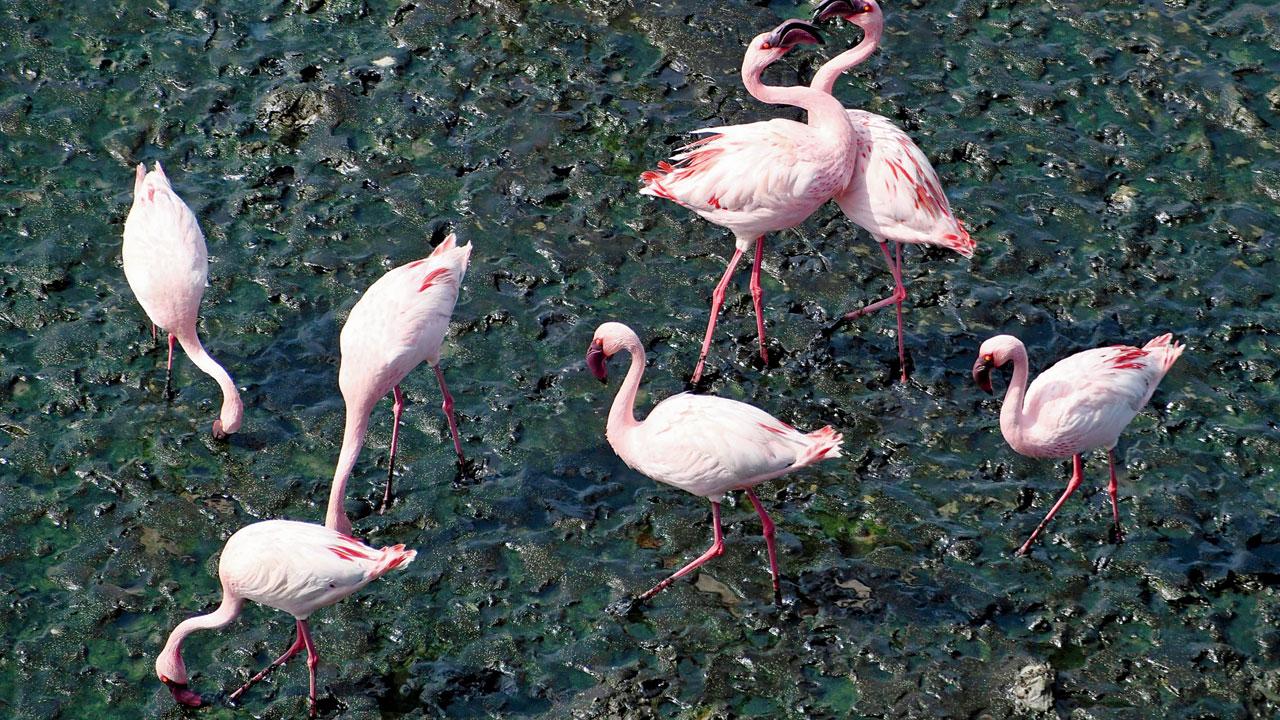Comprehensive BNHS report says migratory flamingos fly at altitudes far below the flight path of the Navi Mumbai airport

Flamingos spotted at Thane Creek Flamingo Sanctuary. File pic/Ashish Raje
Migratory birds, such as flamingos flying between the Thane Creek Flamingo Sanctuary and Navi Mumbai wetlands, maintain an altitude below the aircraft flight path, a recent study by the Bombay Natural History Society (BNHS) shows. Navi Mumbai International Airport Limited (NMIAL) expressed concerns regarding some bird sites—NRI Colony, Training Ship Chanakya (TSC), and Delhi Public School (DPS)—being located close to the airport, as they fall within the Inner Horizontal Surfaces (IHS) of NMIA.
ADVERTISEMENT
However, with the BNHS addressing these concerns, environmentalists are relieved that the Navi Mumbai wetlands will be preserved. The BNHS report is part of the Half-Yearly Compliance Report of Environmental & CRZ Clearance for the ongoing project for the establishment of the Greenfield Airport Navi Mumbai International Airport (NMIA). The flight patterns of birds in Thane creek, potentially intersecting with the approach path of NMIA runways 08L and 08R (for westerly takeoffs/landings), have been studied by the BNHS.

Flamingos spotted at Thane Creek Flamingo Sanctuary. Pic/Ashish Raje
Based on preliminary data visualisation, the report indicates that aircraft taking off or landing on NMIA runways typically maintain an altitude above the observed flight elevation of birds in Thane creek. This is also true for Runway 09-27 of the existing Mumbai airport, as its eastern approach passes near Thane Creek Flamingo Sanctuary. NGO NatConnect Foundation stated that, with these findings, the government must now take urgent measures to save the wetlands.
“The compliance report has also committed that CIDCO/NMIA shall implement the BNHS recommendations for the conservation of the biodiversity around the airport site,” said NatConnect Director B N Kumar. He also pointed out that the Navi Mumbai Municipal Corporation (NMMC) has already asked CIDCO to hand over the three wetlands to the civic body for maintenance and conservation. However, CIDCO has yet to respond, according to the latest information obtained by NatConnect under the RTI Act.
The BNHS pilot covered eleven sites based on their locations, habitat, bird species diversity, and abundance, of which eight were wetlands—Training Ship Chanakya (TSC), Non-Residential Indian (NRI) Complex, Delhi Public School (DPS), Kharghar creek, Kalundre River, Sonari-Belpada, Dastan Phata Jasai, Uran—and three were forested areas: Karnala Bird Sanctuary, Chinar, and Mosare.
The study indicated that the local movement of birds is driven by tide height and water depth in high-tide roosting sites (inland wetlands), highlighting the importance of these wetlands in the conservation and management of birds in these areas. “This is exactly why we fought to restore tidal water flow to DPS Flamingo Lake, where about 10 pink birds died after the waterbody was rendered dry,” activist Rekha Sankhala said. CIDCO had blocked the water flow while constructing the road to Nerul Jetty.
The BNHS report also mentions that it conducted ringing studies around Mumbai to investigate the migratory ecology of shorebirds. Mumbai has been identified as one of the important areas in the Central Asian Flyway, which plays a vital role in maintaining the fragile population of wader species wintering in India.
 Subscribe today by clicking the link and stay updated with the latest news!" Click here!
Subscribe today by clicking the link and stay updated with the latest news!" Click here!







